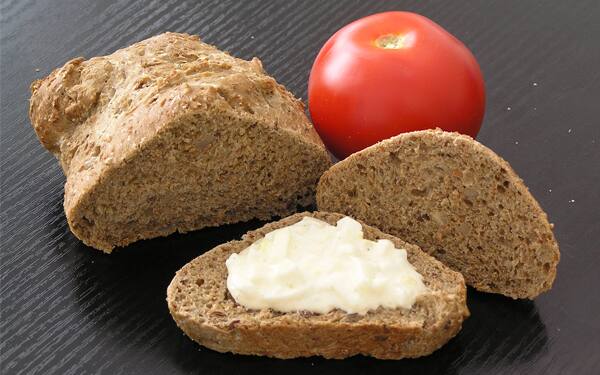
Good nutrition is essential for athletic development and performance, and sometimes, an athlete may want to drop a few pounds. How can that be done in a healthy way – without jeopardizing energy and effectiveness on the court? There is ample evidence why athletes in training should avoid fad diets and trends that non-athletes are embracing. And for athletes in training, it’s extra important to understand safe and constructive options.
Dr. Shawn Hueglin, senior sports dietitian for the United States Olympic and Paralympic Committee (USOPC), advises athletes to start with a conversation with your coaches and parents about nutritional questions and goals.
Parents can help create an environment that allows for healthy choices.
If your team has an athletic trainer, he/she might also be a valuable resource. For athletes seeking to lose weight, Hueglin’s suggests meeting with a dietitian. If such a person isn’t available, speak to a strength coach, who can suggest a few small dietary adjustments.
Hueglin also directs athletes, coaches and parents to the Team USA website, which contains extensive information about types of food, eating guidelines, sport nutrition, weight loss and overall well-being.
Consuming all the basic nutrients – protein, carbs and fat – is critical.
“The longer [athletes] stay in the sport, the more important a healthy diet becomes because of the injury risk, the ability to recover and the travel involved in competing,” Hueglin said.
If an athlete wants to lose a few pounds, it’s important to do so in a way that doesn’t compromise the ability to perform on the court.
Count on Carbs
Oftentimes, post-workout meals are all about the protein, but diets that recommend extremely low carbohydrate intake can leave an athlete lacking essential fuel.
Adam Ross, campus dietitian at Division I St. John’s University, sets the tone for healthy eating for each of the university’s sports programs. Individual counseling is available for any student-athlete.
While the nature of volleyball will burn off a lot of calories, Ross speaks to St. John’s athletes about improving their eating. Fuel foods for volleyball athletes include healthy carbohydrates, which can be found in foods such as sweet potatoes, quinoa, lentils, rice, beans and fruit.
St. John’s offers a fueling station for student-athletes that is stocked with protein shakes, water, simple carbohydrates like pretzels and crackers, granola bars and protein bars. While something like this isn’t often available for high school student-athletes, packing water and protein bars will help athletes avoid reaching for a vending machine snack.
The Power of Protein
Quality protein is a must for energy and recovery. Some people avoid red meat, but Ross recommends eating it twice weekly. “Look for lean sources to avoid the higher fat content, but red meat contains very important nutrients for energy conversion, immune defense and oxygen transport in the body, such as iron, zinc and B vitamins.”
Balance is Better
Ross promotes a balanced approach to nutrition. “You’re always going to have bumps and bruises and things like that,” Ross said. “The more we can promote enhancing recovery, the better. That’s what nutrient-dense foods will do.” Examples of nutrient-dense foods are:
- Mixed nuts
- Avocado
- Olive oil
- Bright colored vegetables
Pro Tip: The more color introduced into your diet, the larger variety of vitamins and minerals you’ll consume.
Forget the Fads
Fad diets may help you drop pounds quickly, but they’re counterproductive.
Intermittent fasting, which has become very popular, is not good for athletes.
“Collegiate athletes are usually weight training in the morning, have classes mid-morning and practice in the afternoon. If you’re trying to go 12 to 16 hours without eating, it’s going to be very detrimental to your performance and your ability to recover,” Ross said.
The bottom line is: there’s no quick fix for weight loss.
A first, healthy step on a weight loss journey is creating a journal and writing down all the foods you eat throughout the week. This will help you gain a better understanding of the nutrients you’re consuming – and which areas can be improved.
When it comes to making changes to your diet, Ross says the solution may be as simple as cutting out sugary drinks. He also suggests cutting back on processed foods — anything that comes from a package — and eating more fresh, nutrient-dense food.
“You don’t have to eat less,” Ross said. “Focus on eating higher quality foods. That’s generally going to promote a better body composition and promote performance at the same time.”

